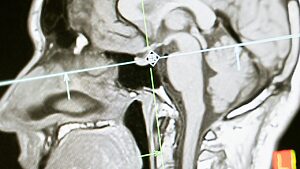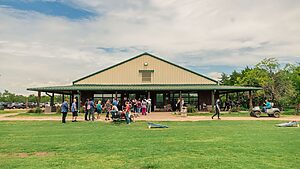The transition from high school to college represents a significant milestone in a young person’s life, but for some Texas students, this period of newfound freedom and academic pressure can trigger or accelerate substance use problems. From the sprawling campuses of UT Austin to the close-knit communities of smaller Texas colleges, addiction affects students across all types of institutions, often requiring specialized treatment approaches that address their unique developmental and academic needs.
The College Addiction Landscape
College years coincide with a critical period of brain development, particularly in areas responsible for decision-making and impulse control. This biological reality, combined with social pressures, academic stress, and increased access to substances, creates a perfect storm for addiction development. Many students arrive at college already struggling with substance use that began in high school, while others encounter drugs or alcohol for the first time in an environment with limited supervision.
The culture surrounding Texas universities often normalizes heavy drinking and recreational drug use, making it difficult for students to recognize when their substance use has crossed from experimentation into dependency. Greek life, athletic programs, and social organizations may inadvertently reinforce drinking cultures, while academic pressures drive some students toward stimulant abuse as a misguided attempt to enhance performance.
Academic consequences often serve as the first warning sign that substance use has become problematic. Declining grades, missed classes, incomplete assignments, and academic probation frequently precede any recognition of an underlying addiction issue. For many families, these academic problems represent their first indication that their college student needs help.
Unique Treatment Considerations for Young Adults
Traditional addiction treatment models were designed primarily for adults with established careers and family responsibilities. College students require different approaches that account for their developmental stage, academic commitments, and family dynamics. Young adults often struggle with identity formation, financial dependence on parents, and uncertainty about their future direction, all of which influence their treatment needs and recovery process.
Family involvement presents both opportunities and challenges in college student treatment. Parents may feel responsible for their child’s addiction or struggle with when to provide support versus allowing natural consequences. Many students resist family involvement in treatment, viewing it as a threat to their newfound independence. Effective treatment programs must navigate these dynamics carefully, helping families establish healthy boundaries while maintaining supportive relationships.
Academic planning becomes a crucial component of treatment for college students. Some may need to take a leave of absence to focus fully on recovery, while others can continue with reduced course loads or modified academic arrangements. The timing of treatment often requires coordination with academic calendars, and successful programs help students develop strategies for returning to campus or transferring to different institutions when necessary.
Addressing Co-Occurring Mental Health Issues
College students experiencing addiction frequently struggle with co-occurring mental health conditions, including anxiety, depression, eating disorders, and trauma-related symptoms. The stress of academic performance, social adjustment, financial concerns, and future uncertainty can exacerbate these conditions, creating complex treatment needs that require integrated approaches.
Many students have never learned healthy coping mechanisms for managing stress, disappointment, or social anxiety. Substance use often becomes their primary method for dealing with difficult emotions or situations. Treatment must focus on developing these essential life skills while addressing the underlying addiction.
At Texas Recovery Centers in Scurry, TX, we understand the unique challenges facing college-age clients. Our treatment approach acknowledges that young adults are still developing their identity and life skills while struggling with serious addiction issues. We work closely with families to establish appropriate levels of support and involvement while respecting the student’s growing independence.
Planning for Return to Academic Life
One of the most critical aspects of college student addiction treatment involves planning for the return to academic environments. This process requires honest assessment of triggers, development of robust coping strategies, and often significant lifestyle changes. Some students benefit from transferring to different institutions to create distance from previous social circles and environments associated with substance use.
Campus recovery support resources have expanded significantly at many Texas universities in recent years. Collegiate recovery programs, sober housing options, and student organizations focused on recovery provide ongoing support for students returning to academic life. These programs recognize that recovery is an ongoing process that requires sustained support throughout the college experience.
Academic accommodations may be necessary for students returning from treatment, particularly those with co-occurring mental health conditions. Understanding how to access disability services, communicate with professors about recovery needs, and develop realistic academic timelines becomes essential for long-term success.
Building Long-Term Recovery Skills
Young adults in recovery need to develop skills that will serve them throughout their lives, not just during their college years. This includes learning to navigate social situations without substances, developing healthy relationships, managing stress and emotions effectively, and building a sense of purpose and direction that doesn’t revolve around academic achievement alone.
Career planning and life skills development take on special importance for college students in recovery. Many discover that their previous academic and career goals were influenced by family expectations rather than personal interests. Treatment provides an opportunity to explore authentic interests and develop realistic plans for post-graduation life.
The college years represent a unique window of opportunity for addressing addiction before it becomes further entrenched in adult life patterns. With appropriate treatment and support, young adults can develop the foundation for lifelong recovery while still completing their education and pursuing their goals.
If you’re a college student struggling with addiction, or a parent concerned about your child’s substance use, Texas Recovery Centers at 888-354-2194 can help you explore treatment options that address the unique needs of young adults while supporting their academic and personal development goals.













